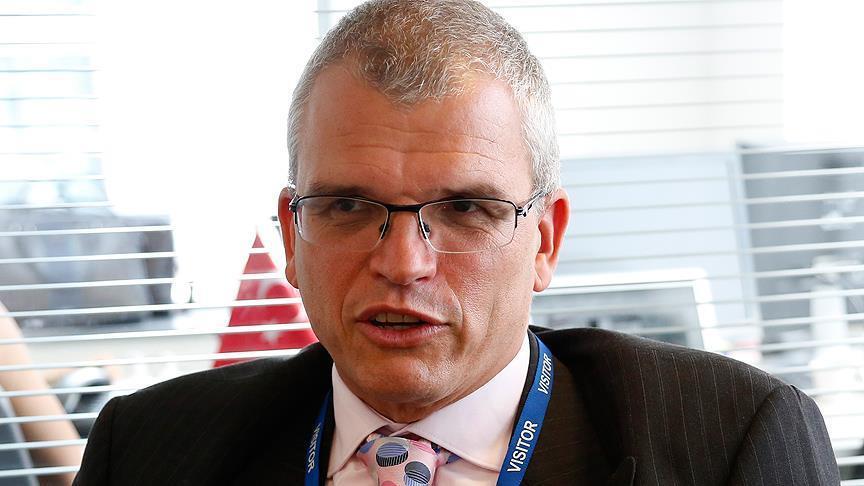
ANKARA
Turkey needs to focus on economic reforms and promotion of its strengths rather than blaming credit rating agencies for unfair rates, Timothy Ash, a London-based strategist at the Nomura International, said Tuesday.
“The rating agencies are never very popular. They do a difficult job, there are objective and subjective factors. In the end, it is a matter of opinion,” Ash said in an interview with Anadolu Agency.
“I don’t believe there is a conspiracy against Turkey by rating agencies. I think the more credible argument is that there is a problem in the rating agency’s methodology,” he said.
Turkish economy has proved unexpectedly quite resilient to shocks and from now on the way to go is keeping up economic reforms and promote economic strengths more clearly to global investors, he said.
“There needs to be much more credible economic reform programs, structure reforms. Economic reform should be number one priority,” he said.
“Turkey should be selling itself externally as a good place to do business. Do everything possible to attract foreign [investment] to the country and trade, and show Turkey is open for business despite July 15 [defeated coup].”
Regarding the resilience of the Turkish economy, Ash said the economic performance of the country was incredible given the circumstances it got through recently.
“If you went back to July 14, and ask anyone in the market where would the lira be, rates be, Turkish credit be if there was military intervention in Turkey. You would probably say 3.54 for the lira and rates a hundred base points plus wider?
“It is incredible in my mind that essentially Turkey, lira is around 3.01 and that is an absolutely remarkable performance,” Ash said.
He added that all this happened in a rather fortunate period when global markets were flush with liquidity and central banks were still flooding the market with liquidity.
“When you put the three things together, the coup failed, underlying credit fundamentals that are recently strong and the liquidity backdrop of global markets or energy markets and we see a pretty reassuring market performance,” he said.
“The positives are that: you survived the July 15 coup, survived the rating downgrade, and yet the market reaction has been muted. Turkey can move on from this,” he added.
About credit rating agencies’ rate cuts to non-investment grades, Ash said he did not believe in conspiracy theories but he thought their methodology was wrong.
“I had a long dispute with S&P in particular about their rating. I’ve long argued that Turkey should be at investment grade for its willingness to pay and low sector to debt ratio,” Ash said.
“It’s a decision they made to go to BB when their BB- was already fairly disappointing rating. It’s hard to explain. Maybe there is rating agency politics going on.”
For another credit rating agency, Moody’s, which recently cut Turkey’s rating non-investment grade, Ash said: “Moody’s has South Africa two notches higher than Turkey. In objective practice, I find it difficult to explain.
“Actually Turkey now has lower public sector debt, very similar current account deficits. Both have structural problems. Turkey’s growth dynamics are clearly more favorable, South Africa has a huge problem of unemployment, unable to create jobs.”
About Turkey’s recently-formed sovereign wealth fund, Ash said the move may not be a quick fix for growth but would be positive in the long term.
“Initially people were a bit surprised that Turkey was launching a sovereign fund. It was announced after the July 15 coup attempt in order to drive growth forward. I don’t think it’s a quick fix,” he said.
“I don’t think it’s going to release lots of financing for Turkey to stimulate growth in the short term. Long term could be interesting and positive,” he added.
Anadolu Agency website contains only a portion of the news stories offered to subscribers in the AA News Broadcasting System (HAS), and in summarized form. Please contact us for subscription options.

